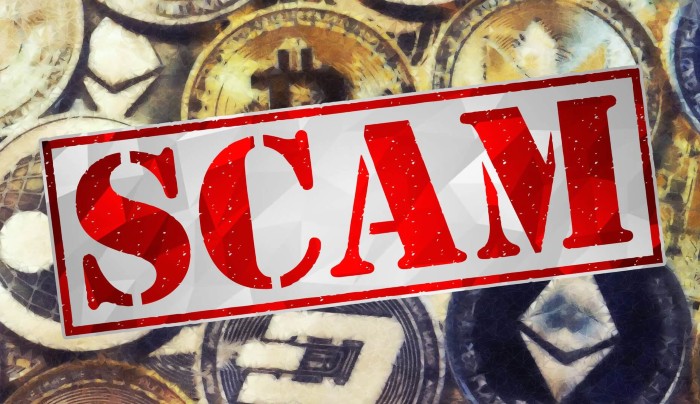
Even though blockchain technology makes it nearly impossible to forge cryptocurrency, frauds do occur. And the consequences may be devastating: accounts seized and digital wallets emptied.
Worse, cryptocurrencies are not regulated by any government. Most cryptocurrency transactions are non-reversible, which makes them even more dangerous. The probability of getting your illegally obtained cashback is low if you give it to a scammer.
1. Fake apps
Different cryptocurrencies have different applications, and cybercriminals are skilled at duplicating them. Thousands of people have downloaded fraudulent cryptocurrency apps. Users who install these phoney applications may immediately start sending payments to scammers.
Fortunately, there are sure warning signs you can look for before downloading cryptocurrency apps to ensure that they are safe – and your investments are as well.
Warning signs:
- Misspellings in the app name or description.
- Inauthentic branding.
2. Imposter or impersonation cryptocurrency scams
An impersonation scam occurs when a cybercriminal impersonates a trusted source to persuade clients to perform a cryptocurrency transaction. They might do this under the guise of government authorities, credit card companies, banks, or any other type of service provider, and they’ll frequently contact you by email and ask you to pay via cryptocurrencies. It could also be an imposter celebrity.
Remember, cryptocurrency isn’t governed by the government and hasn’t yet been embraced by businesses. So, whenever you receive an email request for payment, remember to be careful. Double-check with the source through a different channel before completing a transaction for added safety.
Warning signs:
- The address bar of a website does not begin with HTTPS.
- The payment request is highly pressing.
3. Social media cryptocurrency scams
Cryptocurrency frauds on social media are exactly what they sound like: Cryptocurrency scams that take place over social media. This is frequently done through a fraudulent social media post or ad, which requests payment in cryptocurrency. You may even see other people responding to the post or offering reviews. These could be automated accounts. The post or message might even come from a friend whose account has been hacked.
Scammers can also market a new and potentially fraudulent cryptocurrency to social media celebrities, encouraging consumers to sign up or send them money, which they may multiply. This occasionally results in the influencers obtaining only the payments. These are classified as influencer cryptocurrency scams.
Warning signs:
- A social media user is requesting that you pay for something in bitcoin.
- There are a lot of enthusiastic comments on the ad or article.
4. Blackmail or extortion cryptocurrency scams
When you get an email claiming that someone has compromising information about you, whether photos, videos, confidential data, or anything else, and they demand money from you, it’s known as blackmail or extortion.
When you get a cryptocurrency scam, the con artist typically wants your money in bitcoin. If you can’t reverse transactions, this is often because of a cryptocurrency scam. You should delete these messages and submit the sender to the authorities.
Warning signs:
- Subtly demanding or aggressive messages.
- They requested payment in cryptocurrency.
5. Investment or business opportunity scams
Investment or business opportunity scams generally begin with an unsolicited offer, such as becoming a cryptocurrency investor, that entices you to a fraudulent website where you may learn more about the chance. Once you’ve been lured onto the site, you’re urged to start investing and making money quickly. The site might have fake celebrity endorsements or testimonials.
But if you finish your transaction, the offer never comes to pass, and you don’t see your money again. You might think of these cryptocurrency cons as multi-level marketing or Ponzi schemes.
Warning signs:
- The price appears to be too good to be true.
- “Guarantees” that you’ll become rich quickly.
Bottom line
Investments may be risky enough as they are. Cybercriminals don’t have to be a part of the equation. In the end, trust this: If something appears to be too good to be true, it usually is. Play it safe and keep your cash – whether it’s a cryptocurrency or otherwise – handy.











